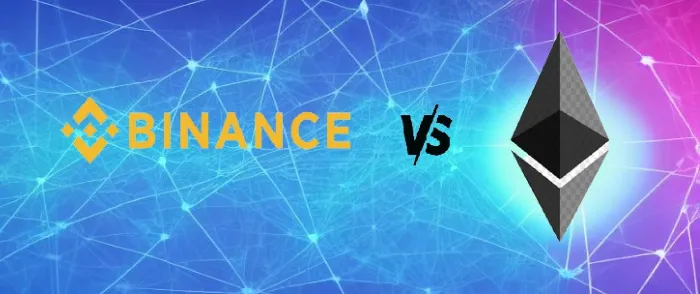Ethereum Blockchain vs Binance Smart Chain: Which is Better for Gas Fees?

Ethereum Blockchain vs Binance Smart Chain: Which is Better for Gas Fees?
Gas fees have been a major concern for users of the Ethereum blockchain. With the rise of decentralized finance (DeFi) and non-fungible tokens (NFTs), the cost of transactions on Ethereum has skyrocketed. This has led to the emergence of alternative blockchains, such as Binance Smart Chain (BSC), which claim to offer lower gas fees. In this article, we will compare the gas fees of Ethereum and Binance Smart Chain and determine which one is better for users.
Gas Fees on Ethereum
Ethereum is the second-largest blockchain by market capitalization and is widely used for DeFi and NFTs. However, the cost of transactions on Ethereum has become a major issue for users. Gas fees on Ethereum are determined by the demand for block space and the complexity of the transaction. The more complex the transaction, the higher the gas fee. This has led to gas fees of up to $100 or more for a single transaction.
One of the reasons for the high gas fees on Ethereum is the limited block space. Ethereum can only process around 15 transactions per second, which is much lower than centralized payment processors like Visa or Mastercard. This has led to a backlog of transactions, which has driven up the gas fees.
Gas Fees on Binance Smart Chain
Binance Smart Chain is a blockchain developed by Binance, one of the largest cryptocurrency exchanges in the world. Binance Smart Chain is designed to be compatible with the Ethereum Virtual Machine (EVM), which means that it can run Ethereum-based smart contracts and decentralized applications (dApps). However, Binance Smart Chain claims to offer lower gas fees than Ethereum.
The gas fees on Binance Smart Chain are determined by the same factors as Ethereum, but they are generally lower. This is because Binance Smart Chain has a higher block size and can process more transactions per second. Binance Smart Chain can process up to 100 transactions per second, which is much higher than Ethereum.
Comparison of Gas Fees
To compare the gas fees of Ethereum and Binance Smart Chain, we will look at the average gas fees for a simple transaction and a complex transaction. A simple transaction is a transfer of cryptocurrency from one wallet to another, while a complex transaction involves interacting with a smart contract or a dApp.
According to Etherscan, the average gas fee for a simple transaction on Ethereum is around 50 Gwei, which is equivalent to $2.50 at the current gas price. However, the gas fee for a complex transaction can be much higher, ranging from 100 to 500 Gwei or more.
On the other hand, the average gas fee for a simple transaction on Binance Smart Chain is around 5 Gwei, which is equivalent to $0.25 at the current gas price. The gas fee for a complex transaction on Binance Smart Chain is also lower than Ethereum, ranging from 10 to 50 Gwei.
Conclusion
In conclusion, Binance Smart Chain offers lower gas fees than Ethereum for both simple and complex transactions. This is because Binance Smart Chain has a higher block size and can process more transactions per second. However, Ethereum is still the dominant blockchain for DeFi and NFTs, and many dApps are only available on Ethereum. Therefore, users should consider their specific needs and use cases before choosing a blockchain.
Overall, the high gas fees on Ethereum have become a major issue for users, and alternative blockchains like Binance Smart Chain are gaining popularity. As the blockchain industry continues to evolve, we can expect to see more competition and innovation in the area of gas fees and transaction processing.
